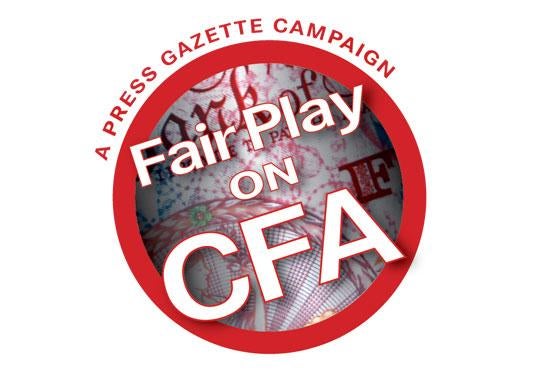
Justice secretary Jack Straw is expected to announce a reform of the no-win no-fee legal system later this year that will reduce the financial burden on newspapers challenging libel actions.
Daily Mail editor Paul Dacre told the Society of Editors conference in Bristol last night that action will be taken by the Ministry of Justice “in the next few months” to cap lawyers’ fees.
Newspaper groups have lobbied the Government to reform the condition fee agreement system – which is designed to provide access to justice but has been used by wealthy celebrities such as Naomi Campbell and Cherie Blair.
Lawyers taking cases on a no-win, no-fee basis can charge a success fee equivalent to 100 per cent on top of their normal fee, and publishers have been ordered to pay huge legal costs even in cases where the claimant’s damages are low.
Press Gazette has been campaigning for a fairer system for news organisations faced with excessive success fees which can deter them from fighting legitmate stories in the public interest.
In his keynote Society of Editors lecture, Dacre said the newspaper industry had held “many constructive meetings” with the Ministry of Justice and new proposals were expected to be announced shortly.
Dacre said CFAs were “being ruthlessly exploited by unscrupulous lawyers” and gave the example of MP Martyn Jones’ successful libel bid against the Mail on Sunday over claims he had sworn at a Commons official.
The paper was ordered to pay £5,000 in damages, but the total bill amounted to £520,000 – including solicitors’ costs, success fees, barristers’ costs, VAT and libel insurance.
“Can it really be right for a QC in a libel case to be paid £7,000 for a day in court while the same QC, prosecuting or defending a serious case at the Old Bailey, may receive less than £600 a day?” Dacre asked.


“The result is that today, newspapers – even wealthy ones like the Mail – think long and hard before contesting actions, even if they know they are in the right, for fear of the ruinous financial implications.
“For the provincial and local press, such actions are now out of the question.
“Instead, they stump up some cash, money they can’t afford, to settle as quickly as possible, to avoid court actions – which, if they were to lose, could, in some case, close them.”
A recently published study by legal information provider Sweet and Maxwell found an increasing number of publishers were reluctant to fight defamation claims to the end because of the prevalence of no-win, no-fee.
The research found that 61 per cent of reported libel cases in the UK between June 2007 and May this year resulted in an early settlement and a statement in open court – compared with 21 per cent in 2004/05.
Email pged@pressgazette.co.uk to point out mistakes, provide story tips or send in a letter for publication on our "Letters Page" blog
